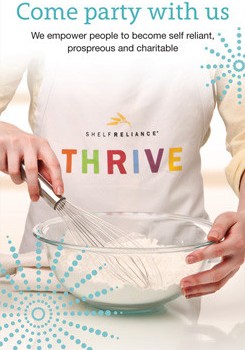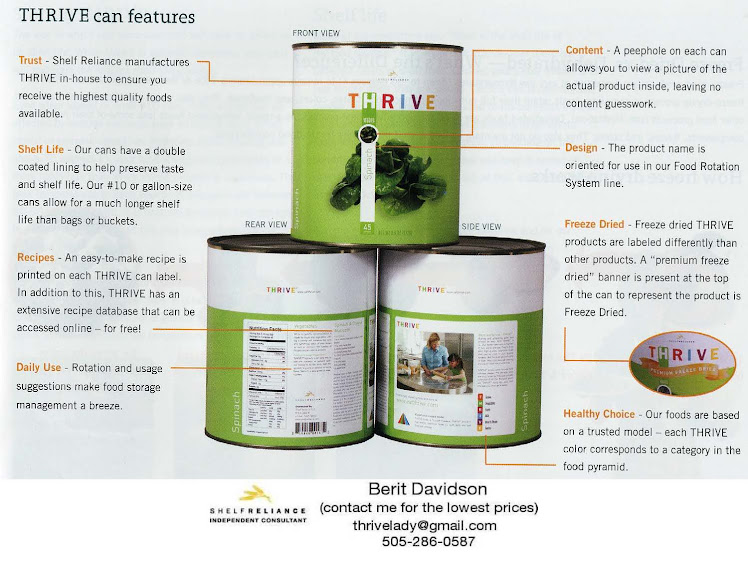Having a supply of essential foods, clothing, fuel, and water will help us during times of personal and natural disasters. We must be prepared for calamities that may come our way. Having what we need and knowing what to do in the event of an emergency or other calamity can bring us peace and help us overcome fear.
In Matthew, chapter 24, we learn of “famines, and pestilences, and earthquakes. …” (
Matt. 24:7.) The Lord warns us of a great hailstorm sent forth to destroy the crops of the earth prior to the second coming. We also read of an overflowing scourge; for a desolating sickness shall cover the land as well as wars decreed upon the face of the earth. …” The Lord declared that these and other calamities shall occur. These particular prophecies seem not to be conditional. The Lord, with his foreknowledge, knows that they will happen. Prophecy is but history in reverse—a divine disclosure of future events. Some will come about through man’s manipulations; others through the forces of nature and nature’s God, but that they will come seems certain. Yet, through all of this, the Lord Jesus Christ has said if ye are prepared ye shall not fear.
J. Reuben Clark, Jr. said:
“First, and above and beyond everything else, let us live righteously. …
“Let us avoid debt as we would avoid a plague; where we are now in debt, let us get out of debt; if not today, then tomorrow.
“Let us straitly and strictly live within our incomes, and save a little.
“Let every head of every household see to it that he has on hand enough food and clothing, and, where possible, fuel also, for at least a year ahead. You of small means put your money in foodstuffs and wearing apparel, not in stocks and bonds; you of large means will think you know how to care for yourselves, but I may venture to suggest that you do not speculate. Let every head of every household aim to own his own home, free from mortgage. Let every man who has a garden spot, garden it; every man who owns a farm, farm it.”

The Lord desires his Saints to be free and independent in the critical days ahead. But no man is truly free who is in financial bondage.
“Think what you do when you run in debt,” said Benjamin Franklin, “you give to another power over your liberty.” “… pay thy debt and live …” said Elisha. (2 Kgs. 4:7.)
L. Tom Perry said "Acquire and store a reserve of food and supplies that will sustain life. Obtain clothing and build a savings account on a sensible, well-planned basis that can serve well in times of emergency."
Perhaps if we think not in terms of a year’s supply of what we ordinarily would use, and think more in terms of what it would take to keep us alive in case we didn’t have anything else to eat, that last would be very easy to put in storage for a year … just enough to keep us alive if we didn’t have anything else to eat. We wouldn’t get fat on it, but we would live; and if you think in terms of that kind of annual storage rather than a whole year’s supply of everything that you are accustomed to eat which, in most cases, is utterly impossible for the average family, I think we will come nearer to what J. Reuben Clark, Jr. advised us way back in 1937.
There is more salvation and security in wheat, than in all the political schemes of the world. Dry, whole, hard grains, when stored properly, can last indefinitely, and their nutritional value can be enhanced through sprouting, if desired.
Building up a food storage helps us learn how to prepare and use basic foods. Because many items in a food storage only last a certain amount of time it is important to rotate the food by using older items and replacing those items with new ones. When we do this we can learn to use our food storage which in turn will prepare us to
know how to use our food storage in the case of an emergency.
There are blessings in being close to the soil, in raising your own food, even if it is only a garden in your yard and/or a fruit tree or two. Man’s material wealth basically springs from the land and other natural resources. Combined with his human energy and multiplied by his tools, this wealth is assured and expanded through freedom and righteousness. Those families will be fortunate who, in the last days, have an adequate supply of each of these particulars. Wood, coal, gas, oil, kerosene, and even candles are among those items which could be reserved as fuel for warmth, cooking, and light or power. Some may be used for all of these purposes and certain ones would have to be stored and handled cautiously. It would also be well to have on hand some basic medical supplies to last for at least a year.
We have been advised to pay our own way and maintain a cash reserve. Recent history has demonstrated that in difficult days it is reserves with intrinsic value that are of most worth, rather than reserves, the value of which may be destroyed through inflation. It is well to remember that continued government deficits cause
inflation; inflation is used as an excuse for ineffective price controls; price controls lead to shortages; artificial shortages inevitably are used as an excuse to implement
rationing.
When will we learn these basic economic principles? However, “… when we really get into hard times,” said Clark, “where food is scarce or there is none at all, and so with clothing and shelter, money may be no good for there may be nothing to buy, and
you cannot eat money, you cannot get enough of it together to burn to keep warm, and you cannot wear it.”
How on the face of the earth could a man enjoy his religion, when he had been told by the Lord how to prepare for a day of famine, when, instead of doing so, he had fooled away that which would have sustained him and his family.
If you are without bread, how much wisdom can you boast, and of what real utility are your talents, if you cannot procure for yourselves and save against a day of scarcity those substances designed to sustain your natural lives? … If you cannot provide for your natural lives, how can you expect to have wisdom to obtain eternal lives?
When will all these calamities strike? We do not know the exact time, but it appears it may be in the not-too-distant future. Those who are prepared now have the continuing blessings of early obedience, and they are ready. Noah built his ark before the flood came, and he and his family survived. Those who waited to act until after the flood began were too late.
Let us not be dissuaded from preparing because of a seeming prosperity today, or a so-called peace.
Recall the ravages of
inflation in Germany in the early 1920s. In December 1923 in Cologne, Germany, it cost six billion marks for breakfast. That was just 15 cents in American money. Today, the real inflation concern is in America and several other nations.
Ezra Taft Benson spent a year in war-torn Europe at the close of World War II, without family, distributing food, clothing, and bedding to the needy people. He looked into their sunken eyes, in almost the last stages of starvation. He saw faithful mothers carrying their children, three and four years of age, who were unable to walk because of malnutrition. He even saw a hungry woman turn down food for a spool of thread. He saw grown men weep as they ran their hands through the wheat and beans sent to them from America.
The days ahead are sobering and challenging. Oh, may we be prepared spiritually and temporally.
 best stuff!
best stuff! 






































.jpg)







